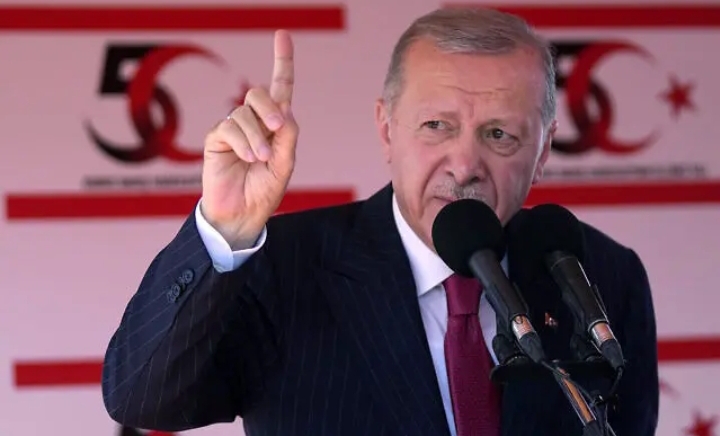According to a report by Times of Israel, Turkish President Recep Tayyip Erdogan has threatened to invade Israel in a show of support for the Palestinian cause.
Speaking during a recent party meeting, he asserted, “Just as we entered [Nagorno-]Karabakh, just as we entered Libya, we might do the same to them. There is nothing we can’t do. We must only be strong.”
Erdogan’s remarks come in the context of ongoing hostilities between Israel and Hamas, with the Turkish president positioning himself as a defender of Palestinian rights. “We must be very strong so that Israel can’t do these things to Palestine,” he emphasized, highlighting his long-standing criticism of Israeli military actions in Gaza.
The relationship between Turkey and Israel has been fraught with tension since Turkey recognized Israel in 1949. Significant strains emerged following the 2010 Mavi Marmara incident, where Israeli forces killed Turkish activists on a humanitarian mission to Gaza. This event marked a low point in diplomatic relations, leading to years of hostility and accusations from Erdogan, who has labeled Israel a “terror state.”
Recent developments have seen Erdogan’s government taking an increasingly hardline stance against Israel.
In July 2024, he vowed to block any NATO cooperation with Israel, stating, “Until comprehensive, sustainable peace is established in Palestine, attempts at cooperation with Israel within NATO will not be approved by Turkey.” This declaration raises concerns about Turkey’s commitment to NATO, especially given the alliance’s support for Israel, a close ally of many member states.
NATO’s response to Erdogan’s threats is likely to be cautious. While the alliance has historically supported Israel’s right to defend itself, Erdogan’s aggressive rhetoric poses a challenge to NATO’s internal cohesion. Analysts suggest that NATO may emphasize diplomatic solutions and condemn any aggressive posturing from Turkey that could jeopardize the security of member states.
Erdogan’s threats also raise questions about Turkey’s role within NATO. The alliance has only invoked its collective defense clause, Article 5, once in its history, following the September 11 attacks. An invasion of Israel by Turkey—a close ally to many NATO members—would complicate the alliance’s response and could lead to significant geopolitical ramifications….Seë _ Morë

